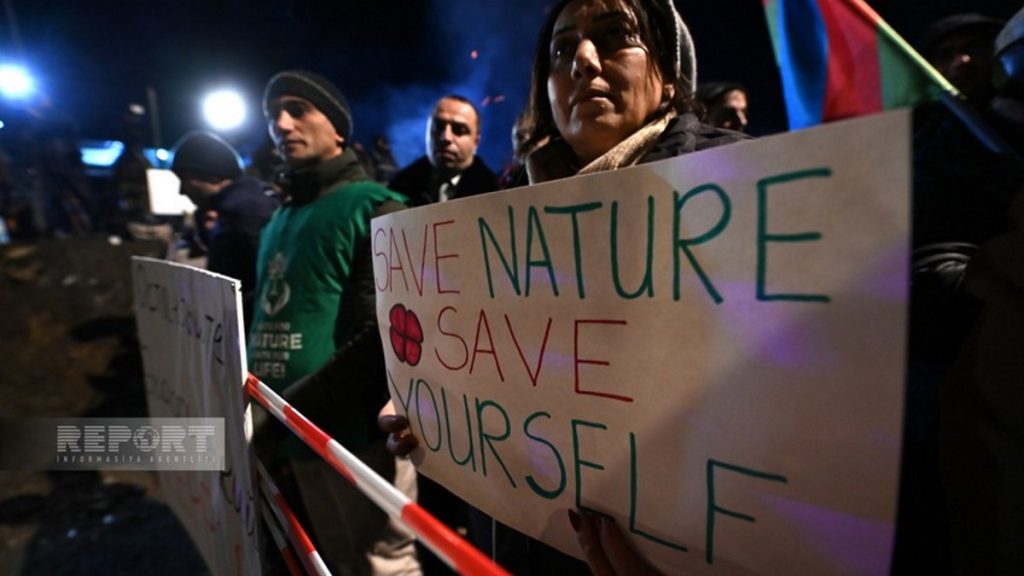Russian troops suffer humiliation not only in Ukraine, but also in the South Caucasus. Tensions in Nagorno-Karabakh, in the Russian peacekeepers’ zone of responsibility, threaten to escalate and lead to a new round of violence in the turbulent region. How would such an outcome affect Moscow’s positions in Armenia and Azerbaijan?
As a result of the 44-day war the two Caucasus nations fought in 2020, some 2,000 Russian peacekeeping troops have been deployed to Nagorno-Karabakh – a mountainous region internationally recognized as part of Azerbaijan, although it has been under the Armenian control since 1994, when the two sides ended the First Karabakh War. One of their tasks is to ensure security of the Lachin Corridor – the only road connecting Armenia with Nagorno-Karabakh where ethnic Armenians make up the majority of the population. However, the Russian peacekeepers’ actions seem to have demonstrated that the Karabakh Armenians cannot count on their protection.
On December 12, dozens of Azerbaijani demonstrators, who are believed to be eco activists, blocked the Lachin Corridor demanding that the Russian troops prevent Armenian “illegal exploitation of Azerbaijan’s natural resources in the region”. Over the week, there were several standoffs between Azerbaijani protesters and the Russian army. Surreal scenes of Azerbaijani journalists provoking Russian peacekeepers became viral on social networks. Azerbaijani special forces eventually got involved, but there were no serious incidents.
It is hard to imagine the Serbs in Kosovo, or in Bosnia and Herzegovina, blocking and provoking NATO peacekeepers. Quite aware that NATO forces’ reaction would be harsh, they would never dare to take such steps. Since Russia has already demonstrated its weakness in Ukraine, Azerbaijan has nothing to be afraid of. Baku knows that, even if some Russian troops in Nagorno-Karabakh get killed or wounded, there would be no consequences for the energy-rich Caucasus nation. Given that the Kremlin did not react when Azerbaijan downed a Russian military helicopter in Armenia in November 2020, it is not surprising that Moscow continues turning a blind eye to Azerbaijani activities in Nagorno-Karabakh.
For Baku, on the other hand, the mountainous region is an integral part of Azerbaijan, even though it still does not have an effective control over significant portions of the territory. But the South Caucasus nation has a long-term strategy, and is determined to restore its sovereignty over the region. Azerbaijani Foreign Minister Jeyhun Bayramov wrote in a November 28 letter to the United Nations Security Council that Armenia “refuses to share full and accurate information on the existing minefields, and continues to plant new landmines at a massive scale in the territory of Azerbaijan.” Indeed, Armenian forces have laid a large number of landmines in Nagorno-Karabakh during the 44-day war, hoping to prevent Azerbaijani troops from capturing more Armenian-controlled territories. Since the local Armenians cannot count neither on Yerevan’s nor on Moscow’s support, it is not improbable that they will continue laying landmines in an attempt to protect themselves if another round of clashes eventually breaks out.
Such a strategy will, however, unlikely help them preserve control over the region. Despite Yerevan’s significant arms imports from India, Azerbaijani army remain superior not only to the Armenia-backed Nagorno-Karabakh forces, but also over the Armenian military. Still, at this point, there are no indications that Azerbaijan aims to launch a large-scale offensive aiming to establish full control over the region. Baku is likely using eco-protests as an instrument against Yerevan, hoping to force Armenia to make concessions regarding the Nakhchivan Corridor – a route that should connect mainland Azerbaijan with Turkey via Armenian territory.
At the same time, Baku’s actions clearly demonstrate Russia’s impotence, which is why, in the mid-term, both Armenia and Azerbaijan will find Russian military presence in Nagorno-Karabakh useless. From the Armenian perspective, the best option would be a potential deployment of international peacekeeping forces to the region, given that the Russian troops in Nagorno-Karabakh cannot protect themselves, let alone the local Armenians. But Azerbaijan, as a clear winner of the 44-day war, is unlikely to ever accept such a proposal.
Thus, for the foreseeable future, the Karabakh Armenians will remain the greatest victims of Armenia’s 2020 war defeat, as well as of Russia’s debacle in Ukraine. Some 120,000 Armenians living in Nagorno-Karabakh – reportedly without gas supplies and without any access to Armenia – remain surrounded by Azerbaijani forces. Although the Russian Defense Ministry’s Peacekeeping Command in Nagorno-Karabakh accused Azerbaijan of blocking the Lachin Corridor, Moscow does not have any mechanisms to force Baku to unblock the road.
At this point, the only foreign actor that can help the Armenians in Nagorno-Karabakh to avoid a humanitarian disaster is the United States. Given that the US State Department Spokesman Ned Price called on Azerbaijan to restore free movement through the Lachin corridor, it is entirely possible that Washington will soon pressure Baku to end the road blockade. In other words, as a result of the Lachin Corridor crisis, the United States could increase its influence in the region that has traditionally been in Russia’s geopolitical orbit.
